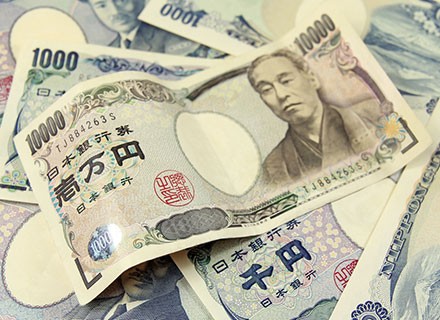Japan, whose economy has recently lost its “World’s Third Largest” status, now stands ready to take appropriate action against excessive exchange-rate moves, the Asian country’s top currency diplomat said as yen declined to levels seen by traders as “heightening the chance of currency intervention.”
The warning by Masato Kanda, Japan’s vice finance minister for international affairs, now reflects Tokyo’s desire to prevent further falls in the yen that has the potential to hurt households and domestic retailers by boosting the cost of importing raw materials.
“I won’t comment on recent currency moves. But it’s desirable for exchange rates to move stably reflecting fundamentals. We’re watching currency moves with a strong sense of urgency, and ready to respond appropriately if we see excessively volatile moves,” Kanda told reporters on the sidelines of the G20 finance leaders’ meeting in Sao Paulo.
The yen has been the worst-performing major currency in 2024 as funds and others have traded on the huge United States-Japan interest rate and bond yield gap, with the sections of the market even betting that the trend will persist further.
The yen has shed 6% of its value against the dollar so far in 2024, falling below 150.00 per dollar to within sight of its post-1990 lows around 152.00 per dollar.
Kanda, who is attending the G20 meeting on behalf of Japan Finance Minister Shunichi Suzuki, told the media about him calling on policymakers to be mindful of the risk that volatility may heighten in financial markets, including for exchange rates.
“I told the meeting that excess volatility in the currency market was undesirable, and that it was important to maintain the G20 commitment on exchange rates,” the official stated further.
“The G20 and the smaller G7 group of advanced nations share a common understanding that stable currency moves are desirable, and that countries have authority to take action in the market when exchange-rate moves become too volatile,” stated a Reuters report on the matter.
Japan intervened in the currency market three times in 2022 when the yen plunged to 32-year lows (it neared 152 yen to the dollar). The nation conducted moves like rare dollar-selling, yen-buying, which were seen by the analysts as “state intervention.”
Since then, traders have been practicing caution for any sign of further intervention as the yen continues to flirt at the 150-level.
“Japanese authorities have repeatedly said they were paying more attention to the speed of currency moves, rather than levels, in deciding whether and when to intervene. The yen’s recent declines have been driven in part by heightening market expectations that the Bank of Japan will keep interest rates ultra-low, even after pulling short-term borrowing costs out of negative territory,” Reuters stated further.
Yen Receives BoJ Boost
Bank of Japan (BoJ) board member Hajime Takata has now said that the central bank’s goal of 2% inflation is “finally in sight.” The official said that the development was “necessary to consider shifting gears from extremely powerful monetary easing,” and that the BoJ should “respond nimbly and flexibly toward an exit.” This statement immediately sent the Japanese Yen higher on the session.
Market pricing on February 29, 2024 showed a 61.5% chance of a 10 basis point rate hike at the April BoJ meeting, a 72% chance of a hike at the June meeting, and an 84% chance at the July meeting.
Despite yen picking itself up after the BoJ’s hawkish statement on inflation, the US dollar remained in a holding pattern.
Meanwhile, Japanese stocks, which have been following the pattern of a “once in a life bull run,” experienced a slight outflow of foreign capital in February 2024, after a series of robust purchases.
In the holiday-shortened week ended February 22, foreigners withdrew a net 2.83 billion yen (about USD 19 million) from Japanese stocks, marking their first weekly sale in three weeks.
“In cash equities, they ended a seven-week buying streak with withdrawals of about 78.65 billion yen on a net basis. On the contrary, they still purchased about 75.82 billion yen of derivatives contracts,” Reuters reported further.
The Nikkei share average hit a record high of 39,426.29 on February 27, surpassing the 1989 bubble-era peak. The phenomenon was driven by a tech stock rally, corporate governance reforms, and a weaker yen. Both the Nikkei and the broader Topix index continued their upward trend for the fourth consecutive week.

